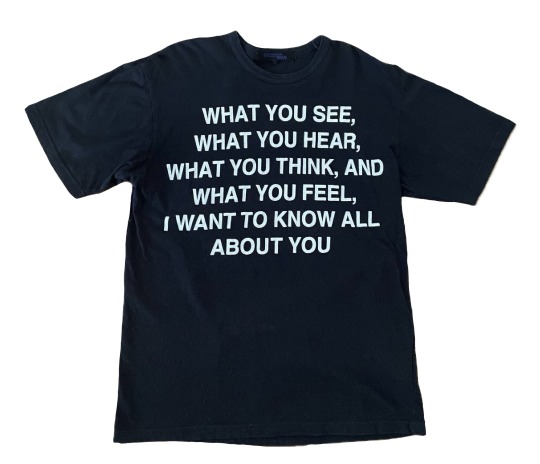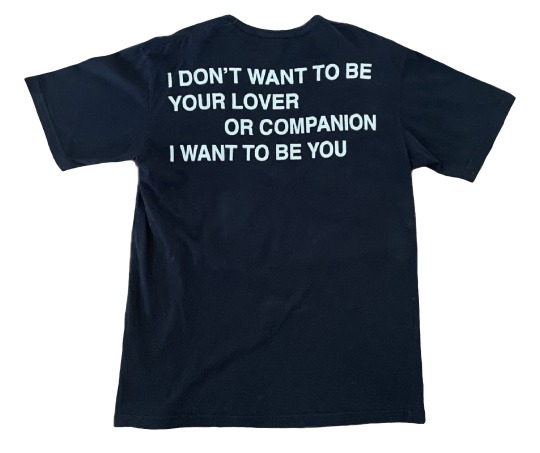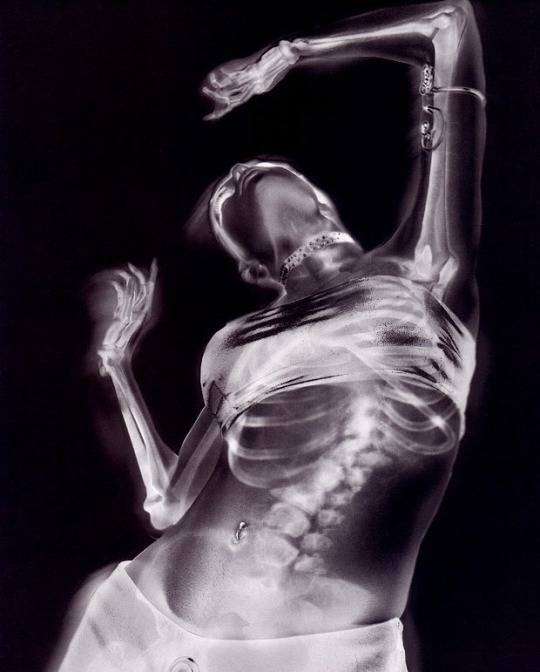Text

The Humans in Metaphor Refantazio are mostly inspired by the artwork brought to us by Hieronymus Bosch and his most notable work: The Garden of Earthly Delights. And IMO, Atlus choosing this artist’s work to tell the story of Metaphor: Refantazio and its themes of racism and fear and anxieties is an excellent choice.
That being said, not every Human Boss in this game are based on Bosch’s work, some take their own ideas in mind, while others have their own interpretations they take after. Speaking of which, I want to talk about how each of the Human Bosses that Will and his crew face in the game each represents the Seven Deadly Sins. Why? Because the Garden of Earthly Delights perfectly represents the things that happen in the Bible, from the start a beauty of the garden up until its, and humanities fall from grace. Even if the translation from Google Translate aren’t perfect, we can use them to best determine why they represent that sin.
This will be discussing the bosses we face in the game, the story behind them, as well as the final boss. So naturally, there will be spoilers.
I will talk about each Human boss enemy we face in order of when we encounter them. Melancholia Zorba will not count for this discussion, but I will talk about Zorba later. Since we don’t face Will has a human boss, I won’t be counting him for this list either.
This list is inspired by the mini bosses we fight in the final dungeon: The Tyrant Star. You have to fight the Humans you have encountered over the course of the game in order to weaken Destroyer Charadrius’ final form. Choosing not to results in Destroyer Charadrius getting more Press Turns, a higher level and each of the abilities said humans (you get a trophy for doing this).
I decided to go back and change some things after looking at the translations (however poor) of the Human Monsters, I was right to assume about one of the humans, but after looking deeper into things, I was surprised to find that some of the humans represent these sins very subtly more often than not.

We start with Homo Gorleo (translation: Human Throat), the human we fight at the Border fort and where Will awakens to his Archetype. I have been debating on whether I want to give the sin representation to this beast, it was between Gluttony and Greed. After translating its name, “human throat,” I was really scratching my head.
So this could mean that Homo Gorleo is in fact the sin of Gluttony. But surely there has to be more to it than just simply eating from its own body to sustain itself. Gluttony means overindulging and taking on more than one can chew. So it is a type of greed, in a way, I wasn’t completely wrong when I had the idea of giving it the sin of greed.
More importantly, this human embodies the actions of Klinger, who sent Will, Strohl, and many others to die at that human’s hands (or legs, in this case) in order to give more merit to Louis’ words and increase his own political influence. And if he had succeeded to get away with this, many others would have shared the same fate as those in the fort and the victims of Halia (Strohl’s home village).
Klinger embodies the nasty side of nobility that gorges on the wealth they are blessed with. While Strohl is the noble that lost everything and has learned that he needs to use what he has to help the less fortunate. And helping the weak becomes the main slogan of Will’s team when the Tournament for the Throne begins.

Next is Homo Avades, which is the Human in the Box art and matches Hieronymus Bosch’s most iconic art piece. The name of this human actually gives the idea on what sin it represents: Homo Avades roughly translates to English as “a person who is greedy.” This Human is the one that Louis brought to the Grand Cathedral in order to give his speech on the humans and his duty to slay them as proof that he should be the rightful ruler.
Homo Avades is one of the humans that was majorly advertised throughout the marketing for this game. It serves as our first major boss in the game (as in our first major fight during the story operations in the game). And this human representing greed is symbolic of the fact that this game as a whole, both in the place we are fighting in and throughout Euchronia, are (for the most part) living for their own selfish desires. So in a way, Homo Avades is one of the first representatives of what Will and the others have to fight against moment to moment.
And also, the reason why we have to fight in the first place is because Zorba, Louis’s right hand man, revives it in his attempt to spite the society that rejected him. In a way, this is his “selfish” attempts to fight against the cruel system that he hates.
Will, Strohl and Hulkenburg (and Gallica) fought bravely to stop the human from destroying Royal Capital. This act of bravery gives Will and the others some renown, which would be needed for the upcoming tournament; and more importantly, stay true to the act of winning the faith of the people.

The Greatworm Homo Butera was the other Human I was debating on whether its the seen of Gluttony or Greed. But after finally settling on Gluttony and Greed for both Homo Gorleo and Avades respectively, this is the human I needed time to realize what it embodies. Homo Butera translated to “Buttery Man.” That’s… not exactly helpful for this post or imposing.
That being said, given the understanding of the word “butter,” it does fit with the theme of eating that comes with the Martira arc. This includes introducing Hulkenburg’s love for… “unconventional” food. This as well includes Homo Jaluzo, whom we will talk about later, that is being fed with adults and children alike.
Back to the topic at hand though, it’s possible that Homo Butera symbolizes lust. Reasoning being is that there is another way we can interpret the word “buttery,” and that is through another term like “butter up.” To “butter up” something or someone is to entice them with empty words or promises. This is best shown when Morris (one of the key figures behind the kidnappings Will and the others are tasked to stop) gives Will and the others an idea on how to find Heismay without getting caught up in the Sandworm. He was lying, and Will and the others get eaten by the human worm as a result.
The themes of lust, and by extension, the term that we are using to describe the themes of this human, continues while trapped inside of its stomach. The goal of this dungeon is to escape out of the worm’s… “other hole” within the time limit. During which, you can try to get as many items as possible, because you can’t play through this Dungeon again after you are through with it. If you get too caught up chasing after items, you may run out of time to escape and will get a game over for it. Which is why I prefer to just get to the exit as soon as possible.
And finally, there is Morris himself after he is ratted out to be the kidnapper. Morris’s reason for helping Joanna kidnap and feed people to Homo Jaluzo is because he just wanted to fatten his piggy bank. Ultimately he gets his comeuppance, as he becomes Homo Jaluzo’s last meal.

Speaking of Homo Jaluzo, this was the easiest Human Sin symbolism to find. This was the only human translation I could get that I actually liked and was the perfect symbolism for. Jaluzo is the Esperanto term for “jealousy,” which is the perfect symbolism for a grieving mother who lost her half breed son to cruelty. And thus Homo Jaluzo’s sin undoubtedly, envy.
It’s perfect for the Joanna to represent the sin of envy as well. Homo Jaluzo served as a replacement to her deceased son, and thus she takes her anger out on other parents who have children out of rage for those parents have, but she had taken from her. The difference between how Zorba and Joanna take their anger out is this: Zorba is out on the entire society, while Joanna has (mostly) targeted the people that had children out of spite for what she had lost. It isn’t until Heismay (who Joanna framed, but also lost his own child) chose to understand what drove her down this path that Joanna sees the error of her ways.

The Sea Horror Homo Sabara’s name translates to “a person who is a sabar.” This made absolutely NO sense to me whatsoever. So I looked up the word “Sabar” and the closest word I could find to match is the word “Sabr.”
“Sabr” or “Sabar” is an old phrase that emphasizes on waiting, perseverance and patience. So staying true to this talking about what sins relate to each of the human boss fights, the closest thing we have is wrath. Wrath is extreme anger that blinds your ability to think rationally. The EXACT opposite of being patient.
Now how does this fight with symbolism of this fight? For context, this fight takes place on the way to Virga Island. During the trip, the Magnus Brothers (Basilio and Fidelio) have joined the ride to spy on Will and Junah, so they get caught in the crossfire because of it.
The reason for why I believe Sabara represents the sin of wrath is because of how it ties into Fidelio’s character. Fidelio (and his brother) were victims of Igniter experimental abuse (alongside many other Paripus (one of which led to Heismay losing his son, hence why he hates the Paripus) and had hated the church and the late king ever since. This leads them to meet Saint Rella and Junah, with the brothers falling in love with the surrogate siblings.
Fidelio’s main flaw comes down to his irrationality towards the things he doesn’t agree with. Be it the party’s philosophy and how they wish to save Eupha during the mission for the Lance, or his opinions on King Hythlodaeus and hatred towards the church. In contrast, Basilio has the emotional intelligence needed to see the bigger picture and truly ask Basilio if what they are doing is truly right.
The only time Basilio has lost his cool is when Fidelio died from protecting from Louis attack on some church folk. Fidelio dies with clarity on the fact that his rage towards the world blinded him to the fact that there are other people who were in his position that may have needed help like he did. And as for Basilio, if Eupha hadn’t yelled him back into sensibility, he would have wasted his brother’s sacrifice.
And then we get to Basilio’s awakening. It’s thanks to Fidelio’s reminder that he has the strength to protect the weak that gives Basilio the courage to move forward without him. And in contrast to many other awakenings in this game, Basilio calmly says goodbye his brother outside of the battlefield.
“See ya around, Del.” - Basilio
Basilio’s starting Archetype is the Berserker. So in a twist of irony, Basilio awakens to a wrathful Archetype in the calmest manner possible. It symbolizes Basilio tapping into those emotions into power without succumbing to them. And thus, Basilio controlled his wrath.

Homo Margo’s name is translated roughly as “human on the edge.” It’s a fitting for the story of the Mustari who are relying on human sacrifices to cure their fears and anxieties (such as our party member to be Eupha). Homo Margo is pretty much a Mustari turned into a Human. So the best sin to associate Homo Margo is Sloth.
Sloth is basically stillness in effort, laziness to put it simply. It perfectly represents the people of Virga Island rely on their teachings and their dragon god to be their shelter in the storm. Eupha herself admits that she had simply her teachings and worries of the people as her crutch for the choices she makes, which would have led to an undignified and senseless death.
It’s thanks to the Will and the others that she learns and accepts the truth. She finally understands what the human that possessed Eht represents: an unwillingness to see or confront what’s in front of them. And thus it blinds them to the truth. By learning from these mistakes, Eupha becomes a priestess with the courage and assertiveness to ascertain her own answer to life.
From then on, Eupha makes the willing choice to travel with Will and the others so that she can grow both as a Priestess and as a person. Eupha becomes more open towards her own emotions and opinions such as when she suggests to tell the Magnus brothers the truth on why they wanted to kill Louis. As well as Eupha being the most outspoken when Basilio was going to chase after Louis after Fidelio’s death.

And last, but most definitely not least, is Louis’s Human form: Destroyer Charadrius. Unlike the many other Humans in the game that were made with Hieronymus Bosch in mind, Destroyer Charadrius is based on Lucifer of the Divine Comedy: Inferno. So it’s only natural that his assigned sin is none other than Pride: the foundation of all sins according to the Bible.
Louis’ fatal flaw has always been pride. This is best shown as the game continues into the final arc. When Will and the others are close to beating him during the fight at Grand Trad on 9/24, Louis resorts to using his magic on Will to transform him into a Human to make the people of the country lose faith in him.
Louis prides himself on the beliefs that power is the deciding factor of the world he plans on creating. But were that the case, one would think Louis should have just accepted defeat the very moment Will and Co. proved their strength to stand against him. But Louis uses a cowardly trick in the midst of the duel to make Will seem like the bad guy.
Louis’s pride, above everything else, prevents him from seeing how he falls short of the very ideals he speaks of. He can’t think for one second at the very thought that he was in the wrong. Which is why he makes it clear that he will kill anyone who doesn’t agree with him.
Louis Social Darwinist worldview (or at least he plans on acting on it) revolves around turning the Royal Sceptre’s accumulated anxiety onto the people to see which people would survive the human transformation and gain more power and who wouldn’t. But Louis fails to realize that his philosophy will backfire because the human transformation is caused by mass amounts of Magla that can’t be controlled (which leads to his own human transformation at the end of the game).
Louis’s refusal to accept his faults or learn to quit when he was ahead finally leads to his death at Will’s hand after awakening his final Archetype.
Will and his friends all have learned to be open to different perspectives without losing themselves to their fears and anxieties. But Louis himself is blind to his own weaknesses and didn’t open his eyes to that truth, it ends with him falling short on his beliefs and dying in the process.
We are done with talking about all of the human bosses and how they represent the seven deadly sins. But there actually is one more unorthodox sin that some scriptures have to be an 8th sin: Despair.


Despair is the ultimate killer of idealism and the ability to believe. This chain of despair from Hythlodaeus losing his wife and son, to Louis losing faith in the king after getting blamed for the Prince’s curse is what led to the chain of events that caused this story in the first place. And had Will fallen into despair over the state of the world in any of the bad endings, he would have been no different than both Louis and Hythlodaeus.
I did say I wouldn’t count Will as part of this list, and said that I would mention Zorba. But the reason for why I’m doing this at all is because it’s important to tie in despair with how the fears and anxieties of the world serves as the fuel behind the Human transformations to begin with.
Melancholia is dense and uncontrollable Magla that can drive any person or beast to insanity. Melancholia itself is a term for “melancholy,” meaning deep sadness. And thus, back to the point of why Louis’s philosophy was doom to fail him, he couldn’t overcome the fears and anxieties that came from the day he lost his family and home to the flames of the church. And thus he takes that sadness out on others (namely Strohl with Halia).
Zorba himself was already a madman long before his human transformation, and thus is the reason why he could “maintain” his physical body.
The Archetypes are supposed be the power that comes from overcoming one’s anxieties. And with it, the power of magic.
Now back to Will and the themes of despair. It’s only as Will maintains his hope and idealism that he truly becomes king. But this is where the Elegy of the Soul comes into play. While this boss is not a human enemy, it’s a dragon that has been overtaken by the fears and anxieties of the people. Thus the Elegy of the Soul represents the potential destruction that can be brought out by the future “hero.” That hero being Will, so this is the closest we get to fighting “Will” as a corrupted version of himself.
This fight is proof that even if Will becomes the king and stops Louis, it doesn’t guarantee that the world will become a truly perfect Utopia. But Will’s character is about striving for a better world is the better alternative than giving up on it/destroying it. And thus, Will’s character is also about maintaining hope in a way that More and Louis could not.
And that power is what it means to face fears and anxieties and become a true king.
139 notes
·
View notes
Text


Comme des Garçons Poem T-Shirt (2001) Designed By: Junya Watanabe
9K notes
·
View notes
Photo

EXCERPTS >|< The Singles Collection
Modern Guide to Health (1947)
We invite you to watch the entire gif set HERE
328 notes
·
View notes













